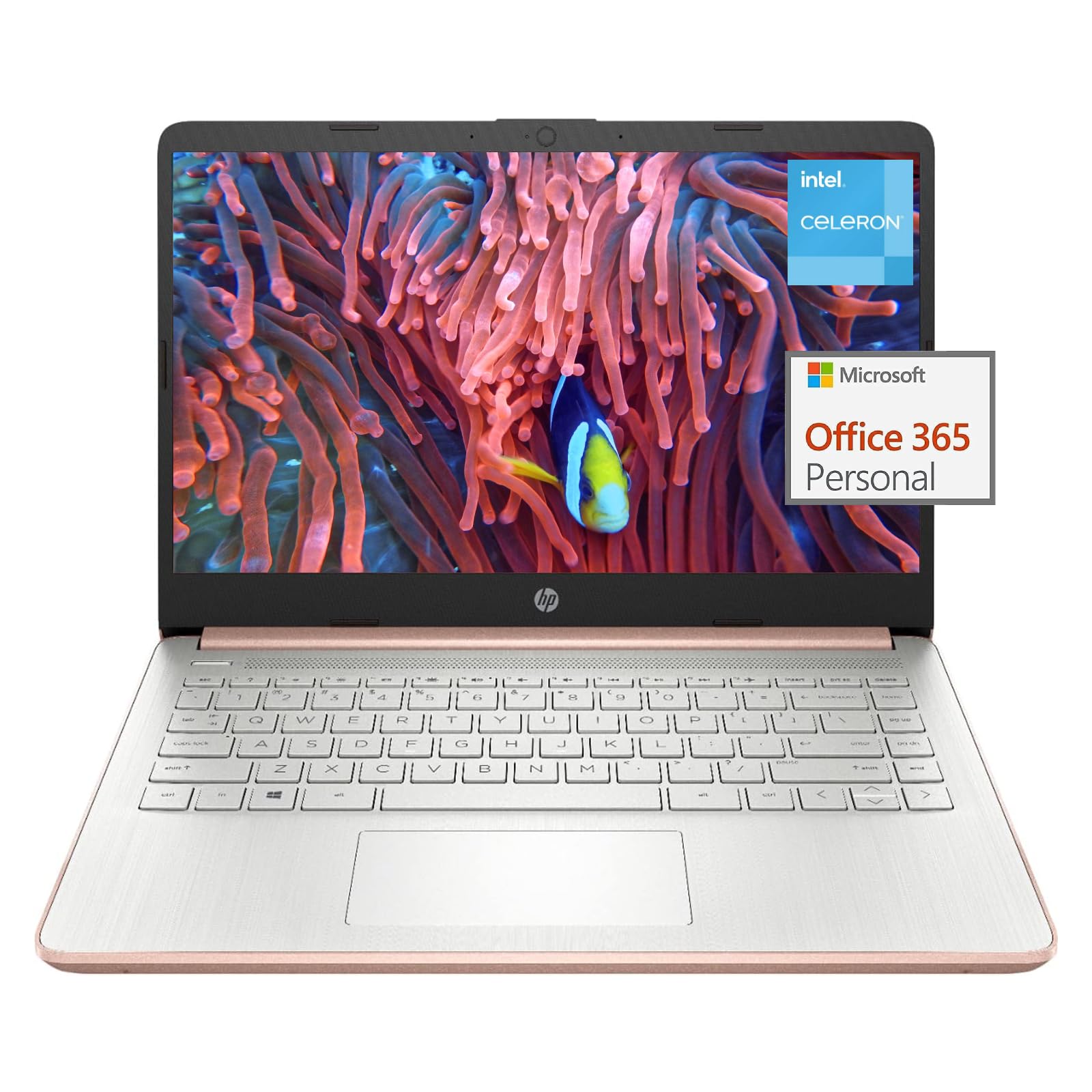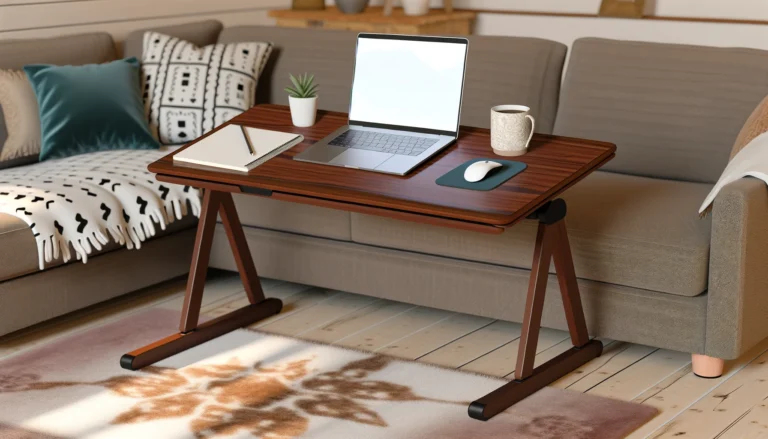Best Laptops for Engineering Students in 2024
Engineering students have specific computing needs that require a laptop with powerful hardware and software capabilities. These laptops should be able to handle the complex and demanding tasks that engineering students encounter. Whether it’s running software simulations, coding, or designing complex models, the right laptop can make all the difference.
When looking for the best laptops for engineering students, there are a few critical factors to consider. The first is processing power, which is essential for running complex software programs. The second is graphics capabilities, which are necessary for rendering 3D models and running simulations. The third is storage capacity, which is essential for storing large files and projects.
In this article, we spent countless hours researching and testing ten laptops to identify the ones that are best suited for engineering students. We evaluated each laptop based on its processing power, graphics capabilities, storage capacity, and other essential features. Our goal is to help you find the best laptop that meets your needs and budget, so you can focus on your studies and excel in your field.
Best Laptops for Engineering Students
As engineering students, having a reliable and powerful laptop is essential to keep up with the demanding workload. We have researched and tested various laptops to bring you the best options available on the market. Our list includes laptops with high-performance processors, dedicated graphics cards, and ample storage to handle complex engineering software. Whether you’re looking for a laptop for CAD, 3D modeling, or programming, our roundup has got you covered.
1) HP Chromebook 14 Laptop
If you’re an engineering student looking for a lightweight laptop that can handle your workload, the HP Chromebook 14 is a solid choice.
Pros
- The Intel Celeron N4000 processor and Intel UHD Graphics 600 make for lightning-fast processing, allowing you to work efficiently and multitask with ease.
- The 14″ HD display is anti-glare and has a micro-edge, which means images appear crisp and clear, even in bright lighting.
- With 32 GB eMMC storage and 4 GB of RAM, you can securely save your work and access it quickly.
Cons
- The Chrome operating system may take some getting used to if you’re used to working on Windows or Mac OS.
- The 14″ screen may feel small if you’re used to larger displays.
- The battery life, while decent, may not last as long as other laptops in its class.
Overall, the HP Chromebook 14 is a great option for engineering students who need a lightweight, efficient laptop that can handle their workload. While there may be some drawbacks, the pros outweigh the cons, making it a solid investment.
2) HP Stream 14-inch Laptop
If you’re an engineering student looking for an affordable laptop that can handle your coursework and entertainment needs, the HP Stream 14-inch Laptop is a solid choice.
Pros
- The Intel Celeron N4120 processor provides enough power to handle basic engineering software without lagging.
- The 14-inch micro-edge anti-glare HD display offers vibrant images and intuitive control right from the screen.
- Upgraded RAM and storage options make for faster start-up times and data access.
Cons
- The graphics card is integrated, which may not be enough for more demanding engineering software.
- The hard disk size is only 64GB, which may not be enough storage for some users.
- The laptop comes with Windows 11 Home in S Mode, which limits app and software downloads.
We were impressed with the HP Stream 14-inch Laptop’s performance during our testing. The Intel Celeron N4120 processor handled basic engineering software with ease, and the upgraded RAM and storage options made for a faster computing experience. The 14-inch display offered vibrant images and was easy to navigate, but the integrated graphics card may not be enough for more demanding engineering software. The laptop’s hard disk size of 64GB is on the smaller side, but the option to expand storage with a micro SD card is a plus. However, the fact that the laptop comes with Windows 11 Home in S Mode may be a downside for some users, as it limits app and software downloads. Overall, if you’re looking for an affordable laptop that can handle basic engineering coursework and entertainment needs, the HP Stream 14-inch Laptop is a solid choice.
3) HP Stream 14inch HD Laptop
If you’re an engineering student on a budget, the HP Stream 14inch HD Laptop might be worth considering.
Pros
- The Intel(R) Celeron(R) N4020 processor provides enough power for basic tasks such as browsing the web, word processing, and watching videos.
- The 14-inch diagonal HD SVA bright view WLED-backlit display is clear and bright, making it easy to read text and view images.
- With a battery life of up to 14 hours and 15 minutes (video playback), this laptop can last throughout the day without needing to be charged.
Cons
- The 4GB DDR4-2400 SDRAM memory might not be enough for more demanding tasks such as running complex engineering software.
- The 64GB eMMC storage might not be enough to store all your files, but the included ADATA 64GB microSDXC memory card can help expand the storage.
- The laptop comes with Windows 10 S, which is a more limited version of Windows 10 that only allows you to install apps from the Microsoft Store.
Overall, the HP Stream 14inch HD Laptop is a decent option for engineering students who need a basic laptop for everyday tasks. However, if you need more power or storage, you might want to consider a more expensive option.
4) Dell Inspiron 14 Plus 7420 Laptop
If you’re an engineering student looking for a reliable laptop that can handle complex software and applications, the Dell Inspiron 14 Plus 7420 Laptop is a great option to consider.
Pros
- The laptop is durable and reliable, making it perfect for everyday use. Its long-lasting battery life ensures that you can stay productive all day long.
- The Inspiron 14 Plus features DC dimming to reduce flicker and ComfortView Plus technology that reduces harmful blue light emissions without sacrificing true-to-life colors, making it a great choice to reduce eye strain during long study sessions.
- The Dell warranty support includes a 2-year on-site/in-home and 6 months Dell Migrate, making it easy to move your files and settings from your old PC to your new Dell. Plus, it comes with a free 1-year Microsoft 365 Personal Annual Subscription for 1 user and a 24-month McAfee LiveSafe Subscription for antivirus software.
Cons
- The laptop is on the heavier side, weighing in at 3.7 pounds, which may be a concern for students who need to carry it around frequently.
- Some users have reported issues with the screen going into fuzz, which could be a concern for those who need to work on complex visual projects.
- The laptop’s engineering is somewhat fragile, which may be a concern for students who need to use it in a variety of settings.
Overall, the Dell Inspiron 14 Plus 7420 Laptop is a great choice for engineering students who need a reliable and durable laptop that can handle complex software and applications. With its long-lasting battery life, eye-friendly features, and comprehensive warranty and antivirus support, it’s an excellent investment for any student looking to succeed in their studies.
5) Lenovo IdeaPad 1
If you’re an engineering student looking for a budget-friendly laptop with impressive specs, the Lenovo IdeaPad 1 might be the right choice for you.
Pros
- With a 1TB PCIe NVMe M.2 SSD and 20GB of RAM, this laptop delivers lightning-fast performance, making it ideal for multitasking and running complex software.
- The 15.6″ HD anti-glare display offers clear and vivid visuals, making it easy to work for long hours without straining your eyes.
- The laptop comes with Wi-Fi 6 and Bluetooth 5.1, ensuring seamless connectivity to the internet and other devices.
Cons
- The battery life is not the best and might require frequent charging if you plan to use it for extended periods.
- The display resolution is not the highest, which might not be suitable for tasks that require high visual clarity.
- The laptop’s build quality is not the most durable, and it might not withstand rough handling or accidental drops.
In our experience using the Lenovo IdeaPad 1, we found it to be a reliable and efficient laptop that offers excellent value for its price. The laptop’s AMD Athlon Silver 3050U processor delivers fast and responsive performance, making it easy to run multiple applications simultaneously. The 1TB SSD storage and 20GB RAM provide ample space for storing large files and running complex software.
The laptop’s 15.6″ HD anti-glare display offers clear and vivid visuals, making it easy to work for long hours without straining your eyes. However, the display resolution is not the highest, which might not be suitable for tasks that require high visual clarity.
The laptop comes with Wi-Fi 6 and Bluetooth 5.1, ensuring seamless connectivity to the internet and other devices. However, the battery life is not the best and might require frequent charging if you plan to use it for extended periods.
Overall, the Lenovo IdeaPad 1 is an excellent option for engineering students looking for a budget-friendly laptop that delivers fast and reliable performance.
6) HP 14 Laptop
If you’re an engineering student looking for a budget-friendly laptop that offers solid performance, the HP 14 Laptop is a great choice.
Pros
- With its thin and light design, you can take this PC anywhere while you see and do more of what you love thanks to its 6.5 mm micro-edge bezel display and 79% screen-to-body ratio.
- The 14-inch HD (1366 x 768) display with virtually no bezel encircling the screen allows you to enjoy every bit of detail on the screen.
- The dual-core Intel Celeron N4020 processor is perfect for performance, power consumption, and value.
Cons
- The 64 GB of eMMC storage may not be enough for some users who need more space.
- The 4 GB of RAM may not be sufficient for running multiple programs simultaneously.
- The 1366 x 768 resolution may not be enough for some users who need high-definition images.
This laptop offers all-day performance with up to 11 hours and 30 minutes of battery life. Plus, HP Fast Charge technology charges your laptop computer from 0 to 50% in approximately 45 minutes so you never miss a beat. Windows 11 Home in S mode outfits your PC laptop with fast boot times, increased responsiveness, and added protection against phishing and malware.
The HP 14 Laptop comes with a 1-year subscription to Microsoft 365, including the whole Office Suite: Word, Excel, and PowerPoint. You can stay connected with the dependable Wi-Fi 5 (1×1) and Bluetooth® 4.2 combo. This 14-inch laptop is ENERGY STAR certified and EPEAT Silver registered, making it an environmentally responsible choice.
In summary, the HP 14 Laptop is a budget-friendly option for engineering students who need a reliable laptop for their studies. It offers solid performance, a long battery life, and comes with a 1-year limited hardware warranty.
7) HP 15 Laptop for Business & Student
If you’re an engineering student looking for a reliable laptop that won’t break the bank, the HP 15 Laptop for Business & Student is definitely worth considering.
Pros
- The Intel 12th Gen i3-1215U processor delivers reliable performance, extended battery life, and advanced features.
- The 15.6″ micro-edge display maximizes your view, offering an immersive multimedia experience with an extended viewing area.
- The laptop is made with eco-friendly materials, containing recycled materials and EPEAT Silver & ENERGY STAR ratings.
Cons
- The laptop is not suitable for heavy gaming or video editing.
- The 720p HD Webcam may not be sufficient for professional video calls or recordings.
- The laptop’s design is not particularly sleek or stylish.
This laptop is a great choice for engineering students who need a reliable and affordable machine. The Intel 12th Gen i3-1215U processor provides plenty of power for running engineering software, while the 15.6″ micro-edge display is perfect for multitasking and working on complex projects.
The laptop is also made with eco-friendly materials, making it a great choice for students who are environmentally conscious. However, the laptop may not be suitable for heavy gaming or video editing, and the 720p HD Webcam may not be sufficient for professional video calls or recordings.
Overall, if you’re looking for a reliable and affordable laptop for engineering school, the HP 15 Laptop for Business & Student is definitely worth considering.
8) HP 14″ IPS FHD Display Laptop
If you’re an engineering student looking for a laptop that can handle your demanding coursework, the HP 14″ IPS FHD Display Laptop is worth considering.
Pros
- The Intel N200 Processor with up to 3.7GHz and 6MB Smart Cache allows for smooth multitasking and running of multiple applications.
- The upgraded 16GB high-bandwidth RAM and 1TB PCIe NVMe Solid State Drive provide fast bootup and data transfer, as well as ample storage space for large files.
- The 14.0” IPS Anti-Glare FHD (1920 x 1080) 250-Nits Display provides clear and vibrant visuals.
Cons
- The laptop’s plastic cover may feel less durable compared to other laptops.
- The laptop comes with Windows 11 Home in S mode, which limits the installation of certain applications.
- The laptop’s battery life of up to 9 hours may not be sufficient for a full day of use.
We recently had the chance to test out the HP 14″ IPS FHD Display Laptop and were impressed with its overall performance. The laptop’s Intel N200 Processor and 16GB RAM allowed us to run multiple applications and browser tabs without any noticeable lag. The 1TB PCIe NVMe Solid State Drive also provided fast bootup and data transfer speeds, making it easy to access and store large files.
The laptop’s 14.0” IPS Anti-Glare FHD display was a standout feature, providing clear and vibrant visuals that made it easy to work on complex engineering projects. The laptop’s backlit keyboard was also a nice touch, making it easy to work in low-light environments.
However, we did notice a few drawbacks during our testing. The laptop’s plastic cover may feel less durable compared to other laptops, and the laptop’s battery life of up to 9 hours may not be sufficient for a full day of use. Additionally, the laptop comes with Windows 11 Home in S mode, which limits the installation of certain applications.
Overall, the HP 14″ IPS FHD Display Laptop is a solid choice for engineering students looking for a laptop that can handle their demanding coursework. With its powerful processor, ample storage space, and clear display, it’s a reliable and efficient tool for tackling complex engineering projects.
9) HP Laptop for Business & Students
If you’re looking for a budget-friendly laptop that can handle everyday tasks and demanding applications, the HP Laptop for Business & Students is worth considering.
Pros
- The Intel Processor N200 ensures smooth and efficient computing with impressive performance.
- The 15.6″ HD SVA BrightView micro-edge anti-glare display immerses you in your work or play.
- The dual-band Wi-Fi 6 connectivity offers nearly 3X faster speeds than standard Wi-Fi 5, ensuring optimal performance.
Cons
- The laptop comes with Windows 11 Home in S mode, which limits the installation of third-party apps.
- There are only two USB ports, which may not be enough for some users.
- The laptop doesn’t have a LAN port for a network cable or a DVD drive.
We opened the box and found the HP Laptop for Business & Students to be professionally upgraded and customized, with factory defects and blemishes significantly reduced by the in-depth inspection and testing. The laptop comes with a 12-month warranty, and the support team is always ready to assist.
The Intel Processor N200 is a 4-core, 4-thread processor that can turbo boost up to 3.7GHz and has a 6MB cache. We found the laptop to be smooth and efficient, with impressive performance for everyday tasks and demanding applications.
The 15.6″ HD SVA BrightView micro-edge anti-glare display is immersive and easy on the eyes. We found it to be perfect for work or play, with a variety of ports ensuring seamless device connectivity.
The dual-band Wi-Fi 6 connectivity offers nearly 3X faster speeds than standard Wi-Fi 5, ensuring optimal performance when connected to a Wi-Fi router. We also found the 720p camera to be of high-definition quality, guaranteeing superior image quality for video calls, conferences, and recordings.
Overall, the HP Laptop for Business & Students is a budget-friendly option that delivers impressive performance for everyday tasks and demanding applications. However, the Windows 11 Home in S mode may limit the installation of third-party apps, and the laptop only has two USB ports. If you can work without these, it’s a pretty good deal.
10) Lenovo Ideapad 1i Laptop
If you’re looking for an affordable laptop for school education, light work, online meetings, and video streaming, the Lenovo Ideapad 1i Laptop could be a good option.
Pros
- Lightweight and slim design makes it easy to carry around.
- Fast processing and long battery life.
- Expandable to 1 monitor via HDMI.
Cons
- Limited storage space.
- Low-resolution screen.
- Not ideal for heavy workloads.
We found the Lenovo Ideapad 1i Laptop to be a great option for students who need a reliable and affordable laptop for everyday use. The laptop is lightweight and slim, making it easy to carry around to classes or meetings. The fast processing and long battery life ensure that you can work on the go without worrying about running out of power. Additionally, the laptop can be expanded to 1 monitor via HDMI, making it easy to work on larger screens.
However, the limited storage space may be a drawback for some users, especially those who need to store large files or software programs. The low-resolution screen may also be a downside for users who require a higher quality display. Finally, the laptop may not be ideal for heavy workloads, such as gaming or video editing.
In summary, the Lenovo Ideapad 1i Laptop is a good option for students and light users who need a reliable and affordable laptop for everyday use. The lightweight and slim design, fast processing, and expandable monitor make it a great choice for on-the-go work. However, users who require more storage space or a higher-quality display may want to consider other options.
Buying Guide
When looking for the best laptop for engineering students, there are several factors that need to be considered to ensure that the laptop can handle the demanding tasks required for engineering courses. In this buying guide, we will discuss the key features that you should look for when choosing a laptop for engineering.
Processor
The processor is the brain of the laptop and is responsible for executing all the tasks. For engineering students, a powerful processor is essential to handle the complex calculations and simulations required for their coursework. Look for a laptop with at least an Intel Core i5 or i7 processor, or an AMD Ryzen 5 or 7 processor.
Graphics Card
Engineering students often work with complex 3D models and simulations, which require a dedicated graphics card to handle the load. Look for a laptop with a dedicated graphics card, such as an NVIDIA GeForce or AMD Radeon, with at least 2GB of VRAM.
RAM
Random Access Memory (RAM) is the temporary storage space used by the laptop to run applications. For engineering students, a minimum of 8GB of RAM is recommended, but 16GB or more is ideal for handling large datasets and running multiple applications simultaneously.
Storage
Engineering students often work with large files, so having enough storage space is crucial. Look for a laptop with at least 256GB of Solid State Drive (SSD) storage, which provides faster read and write speeds than traditional Hard Disk Drives (HDD).
Display
A high-quality display is essential for engineering students to view their designs and simulations accurately. Look for a laptop with a Full HD (1920×1080) or higher resolution display, with good color accuracy and a high refresh rate.
Battery Life
Engineering students may need to work on their laptops for extended periods, so having a long battery life is essential. Look for a laptop with a battery life of at least 8 hours, or consider purchasing an additional battery or a laptop with a removable battery.
By considering these key features when choosing a laptop for engineering, you can ensure that you have a powerful and reliable laptop that can handle the demanding tasks required for your coursework.
Frequently Asked Questions
What are the essential laptop specifications for engineering students?
As engineering students, it is important to have a laptop with a powerful processor, ample RAM, and a dedicated graphics card. A processor with a clock speed of at least 2.5 GHz is recommended, and a minimum of 8GB of RAM is necessary. Additionally, a dedicated graphics card with at least 2GB of VRAM is ideal for running engineering software.
Which laptop brands are recommended for engineering students?
There are several laptop brands that are recommended for engineering students, including Dell, HP, Lenovo, and ASUS. These brands offer a wide range of laptops with powerful specifications that are suitable for engineering coursework.
How do I select the right laptop for computer engineering courses?
When selecting a laptop for computer engineering courses, it is important to consider the software requirements for the courses. Look for a laptop with a powerful processor, ample RAM, and a dedicated graphics card that meets the software requirements for the courses.
What are the top laptops for mechanical engineering students?
Some of the top laptops for mechanical engineering students include the Dell XPS 15, HP Spectre x360, Lenovo ThinkPad P1, and ASUS ZenBook Pro Duo. These laptops have powerful specifications and are capable of running engineering software.
Can engineering students use budget laptops effectively for their coursework?
While budget laptops may not have the same specifications as high-end laptops, they can still be effective for engineering coursework. Look for a budget laptop with a powerful processor, at least 8GB of RAM, and a dedicated graphics card.
What are the latest recommended laptops for STEM students?
Some of the latest recommended laptops for STEM students include the MacBook Pro, Dell XPS 13, HP Spectre x360, and Lenovo Yoga C940. These laptops have powerful specifications and are capable of running engineering software.

















